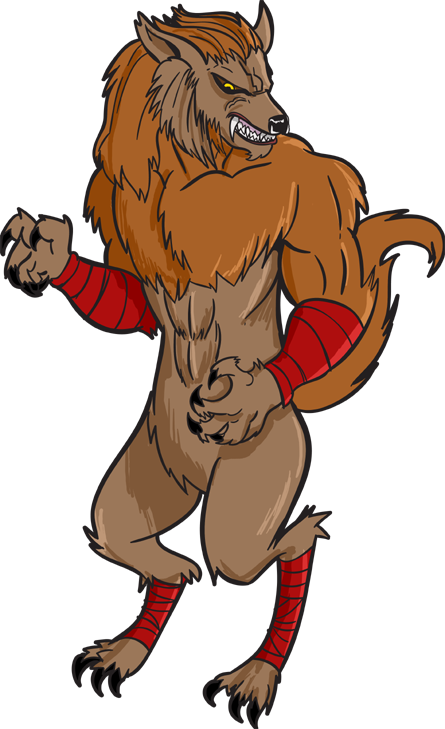Apologies for the long delay in Werewolf articles. I've been wrestling with the issue of what I'd do with Werewolf the Apocalypse. I've been talking to my old gaming group from the 90s and lurking on some Werewolf discussions online as I try to figure it out.
So -to answer the question I posed last time: what would I change about Werewolf the Apocalypse?
1) Lose gifts and rein in the spiritual abilities. The game is about werewolves - not mages. Let's not muddy the waters. Also -- No stepping sideways. The Umbra was a bad idea badly implemented. To do it well - it would probably need to be the entire focus of a game. And that game wouldn't be Werewolf. If you want to keep some kind of spirit communication, OK. But make it much more difficult and much more ambiguous. You shouldn't just be able to call your totem on the big spiritual telephone for a clue
2) Consider getting rid of tribes or lessening their importance.Werewolves aren't overly political creatures. Yeah - politics are an intrinsic part of personal and group relations. And Packs are indeed political structures. But back room, Machievellian manipulations? Leave that for vampires. In terms of tone -- Werewolf is a game of action.
If you keep tribes - add more tribal diversity. More varied and contradictory cosmology between tribes.
Libra, over at the Mutants and Masterminds forum had an interesting take on Werewolf social structure: focus on packs as the primary social unit.
- While humans speak of 'tribes', 'clans' and occasionally a 'Werewolf Nation', as far as most werewolves are concerned they only live in packs (Which admittedly differ in size and precise composition). It's fairly uncommon to find a lone werewolf - but the most dangerous lycanthropes tend to be these lone wolves.
3) Lose the eco-jihad. It's a little troubling when you look at it hard. (It's ok to slaughter because my god (errm - Gaia) tells me its necessary). Also Pentex and the Black Spiral Dancers a little mustache-twirling as villains go.
(Note - yeah - several, but not all, of these have been addressed in the new incarnation of Werewolf)
4) Lose the other shapechangers. It's called Werewolf. Keep the focus on lycanthropy. Leave were-cats, bats, snakes, sharks, bears, spiders and ravens for another game.
5) Lose the Veil and the Delirium. So - when humans see you in Crinos form, they fall over twitching like a herd of fainting goats? That doesn't say spatterpunk horror to me. That says slapstick comedy.
So -all this begs the questions: What's the basic core of what I would argue was the "cool" behind Werewolf: TA?
It comes down to two elements
1) You're a primal, violent anti-hero
2) You're in a world of supernatual mystery and darkness were many things need fixing. And by "things" we mean "EVIL:. And by fixing -- we mean "violent death"
(As a sidenote -- you can make a decent, if not 100 percent, convincing argument that Werewolf: TA was cashing in the ridiculous level of popularity that Wolverine was enjoying in the 90s. In Werewolf, you're pretty much playing a character who might as well be related to Marvel's most stabbity mutant.
Claws - Check!
Beserker rage? Check!
Attitude ranging from philosopher warrior to classic bad-ass to anti-heroic sociopath? Check!)
Admittedly, it sounds simple, even goofy. And this is one reason I've been wrestling with writing this post.
It sounds particularly simple in comparison to the weightier themes that were fronted by other OWOD games like Vampire, Mage and Changeling. But, if I'm being honest, that was the core of the fun I had with Werewolf.
(As an aside: I say "fronting:, because, well --- How often did Vampire games actually incorporate angst and wrestling with the Beast vs Humanity? Seems to me like a lot of that that got lost in the violence and fangy superhero vibes - which I suspect is why Danel is talking about rebuilding it.)
Put another way: WTA was Supernatural if Sam and Dean were lycanthropes. Or Kolchak the Night Stalker if Kolchak was a werewolf.
And, it was fun if certainly not as deep and serious as other White Wolf game. (I still remember a friend of mine holding Changeling in his hands - as though it were a family heirloom - and declaring that he didn't know any gamers in his city who were worthy of it. )
Next Post:
Campaign ideas for the new, stripped down Werewolf concept
